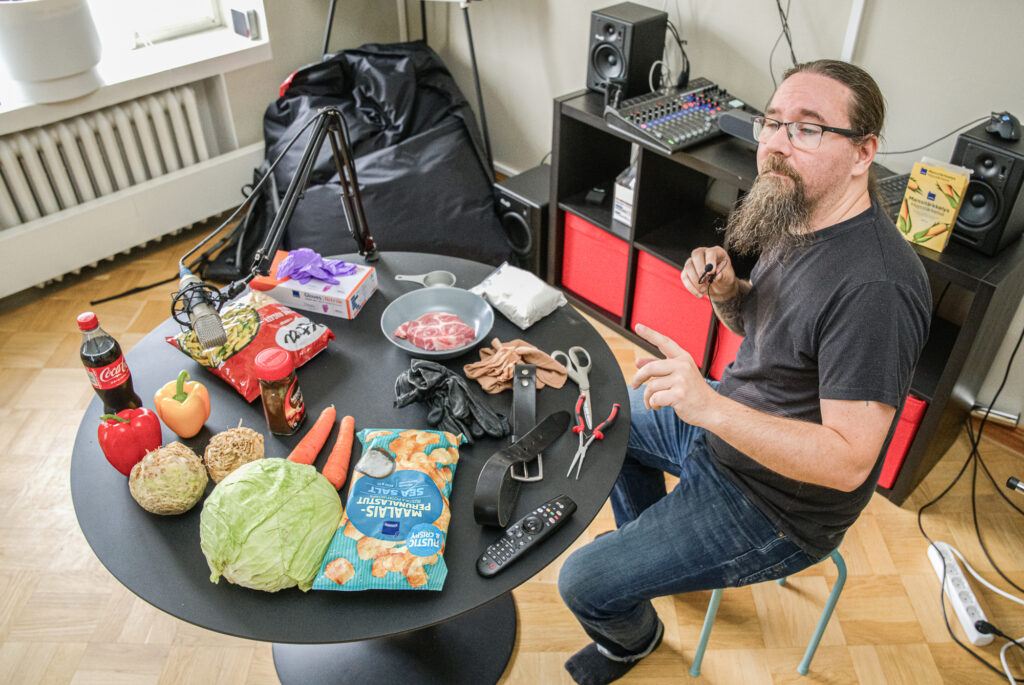In our latest installment of blogposts about Redhill company culture, we are discussing our knowledge sharing scheme, whereby volunteer based workshops are organized within the company so that people with specialist knowledge can present it to interested colleagues in one-off sessions.
These sessions usually take place either fully online or in a hybrid setup so that they are accessible to our remote workers and take the form of an hour-long presentation (usually a slideshow of some kind but sometimes a more hands-on demonstration of a particular skill).
How the Scheme Started
Sandra Paukku, Redhill’s Talent Growth Manager both created and has been doing most of the organizational work for these sessions and she had this to say about the core idea behind them.

“We organise know-how sessions to share experience and bring people together. Sometimes people show their work projects and teach others how they approach new tasks and organise themselves. On other occasions colleagues prepare dry runs for future speeches during events and they appreciate the feedback of the audience”.
In addition to sharing knowledge about specialized skills, Sandra has facilitated talks about “unique hobbies or exotic travel experiences”, saying about the sessions that have happened so far that “[…] the main reason is to make learning fun and also to recognise our work and celebrate milestones!”.
Benefits for the Presenter
In addition to the benefits of attending these sessions, it is important to highlight how much the people that present for them stand to benefit. A quote often attributed to Albert Einstein states that “If you can’t explain it simply, you don’t understand it well enough”. Following that logic, having to prepare a presentation on a particular skill forces its practitioner to distil its essence into the simplest possible form immediately understandable to a layman.

On that point, Kasper Ollas who gave a know-how session style workshop on giving feedback to your colleagues had this to say:
“The idea for giving a talk on feedback came from [my manager]. He told me that I gave consistently high-quality feedback and suggested that I share my methods with my colleagues”. The challenge with this particular topic, according to Kasper is that thinking about feedback requires a level of meta thinking absent from most other considerations, according to him this can be summed up as ‘thinking about thinking’ and therefore necessitates a level of introspection not present in presenting other topics. Despite these difficulties, Kasper’s talk went well, with him receiving quality feedback (no doubt informed by the principles laid out by him during the session) from his colleagues.
Describing his experience with presenting the know-how session, Kasper added that he’d recommend that the rest of our colleagues also try their hand at presenting a topic they are passionate about, stating that “it is great for improving your own workflow, it’s great to share […] information and overall, it’s just a great opportunity for everyone involved.
Additional Applications of Giving Talks
In addition to all of those benefits, as previously mentioned the know-how talks can be used to road-test talks in a supportive environment on a smaller scale before going out with them into the world. Rob Carr spoke on his experience of planning know-how workshops, having done several successful ones by this point in time:
“The know-how sessions, usually they are dry runs for conference talks, […] when I give know-how session talks it’s because I am giving [lectures] to either universities or conferences. It’s always good to have a dry run and as it happens, people find them quite interesting. Also, when it gets to the question time at the end […], it’s always good to get an idea for the kinds of questions people are going to ask me later”.

Rob recording foley. The photo was taken during one of the know how sessions.
When asked whether he’d recommend know-how sessions to anyone else in the company, Rob had this to say:
“I would encourage colleagues to do it for two reasons, the first reason is that it’s always interesting to find out information about other people, […] finding out that you have a shared interest – in our industry you work a lot with other people and leaning about their interests helps you get to know them. – (my interpretation of the much longer quote)
Secondly, when working in the games industry it helps to be able to present information. If you have an idea you want to communicate across to somebody, you should be able to do that in a way that makes sense. […] How do you progress as a professional if you can’t tell people how you feel and what you think on certain things? It’s an underrated skill and I think everyone should [present] at least once”.
In Conclusion
With all of this said, the verdict on know-how sessions such as the ones conducted here at Redhill Games is that they return the effort put into making them happen manyfold, and the people that have had a chance to present on topics they find interesting seem to recommend this experience universally. If you have a topic, you feel strongly other people should know about, organise a know-how style session in your workplace!


